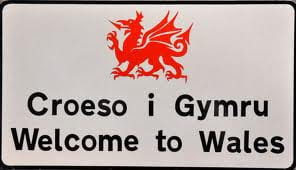There is plenty of poetry about land and landscape but, strangely, not so much on your actual Land Law. It is always nice, then, to come across a work of Land-Law-relevance. There is one such piece in the Welsh language newspaper, Y Darian, for 21st February 1918. Yes, in the depths of certain other global events, some people still had time to turn their minds to real property, including a certain T.H. Lewis, Treharris. Well done, T.H.!
The topic of T.H.’s poem was one of interest to those of us in the Wales-meets-Land Law-meets-Legal History Venn diagram intersection: the tŷ unnos or ‘one night house’. Tradition tells us that a person could claim a right somewhat akin to adverse possession by building a house in one night (following certain rules).[i] I claim no expertise in this lore (though it is attractive, isn’t it?) but it certainly has a hold on the Welsh imagination, and is seen from time to time in modern statements about the inaccessibility of housing (e.g. here).
The poem is very much making a contrast between the arrogant, greedy ‘Lords’ and the poor ‘folk’ or peasants. The peasant and his tŷ are on the harsh high ground and the greedy lords lower down in the ease and beauty of the valley (v3, l5), the peasant manages to build his house undetected, and to the surprise of his ‘betters’ (2.7).
The simplicity of the tŷ is stressed, as is its isolation on a mountain: it is a small cottage (v1 l1 bwthyn bach as opposed to tŷ bach …) dark and cell-like (v4 l3). It has no windows, no proper hearth, just a roof, a door and a simple chimney or vent, to allow the smoke out (as required by tradition) (v4 ll.5 -8). The rules of the game are shown to have been followed – it is a house built overnight (v1 l3; v4 l4) quietly (v2 ll.2-4) with peat/turf walls (v2 ll.1-2) and roofed (v2 l8).
It is a demonstration of the need of the common people (v1 l4) and an example of oppression (v1 l5; v3 ll.1-2). The offences of the ‘old arrogant lords’ (hen arglwyddi beilchion y byd) are likened to a poison (gwenwyn) over Wales (v3 ll3-4). The lords feast in their palaces (v3 l5) and doubt the right of the brave folk to even a yard of the bleak mountain land. (v3 ll. 7-8). The poor man is described as inspired by a longing to escape from the grasp of the greedy lords (4.1-2). Yet it is also a hopeful sign – seren gyntaf, the first star of a dark night (before the dawning of more just times) (v1 ll.7-8). And, as if anyone was unaware of the import of all this, T.H. rounds up in verse 5 by making it clear that it isn’t just a cottage on a mountain, but the introduction to a greater chapter (5.3) with the coming of justice and better things heralded by the dawn breaking on the walls of the little tŷ.
Well, that left me properly inspired and ready to take on some injustice. As it happens, I have to move out of my own home shortly, so may have a look for suitable tŷ unnos sites this afternoon …
GS
11/8/2024
Image – stamped with credit: a possible ‘one night house’. For the avoidance of doubt, that is a sheep, not a righteous Welsh peasant. As far as I am aware, sheep have never tried to acquire a home in this way.
[i] For a journalistic introduction, see here. See, also, e.g., A.N. Palmer and E. Owen, A History of Ancient Tenures of Land in North Wales & the Marches (second edn, 1910), 82 (which adds the idea that the builder had to be newly married – how newly, I wonder: possibly less disappointing use of a wedding night than some, eh?) I am sure there are better, more recent things – something to investigate when I have a moment …



